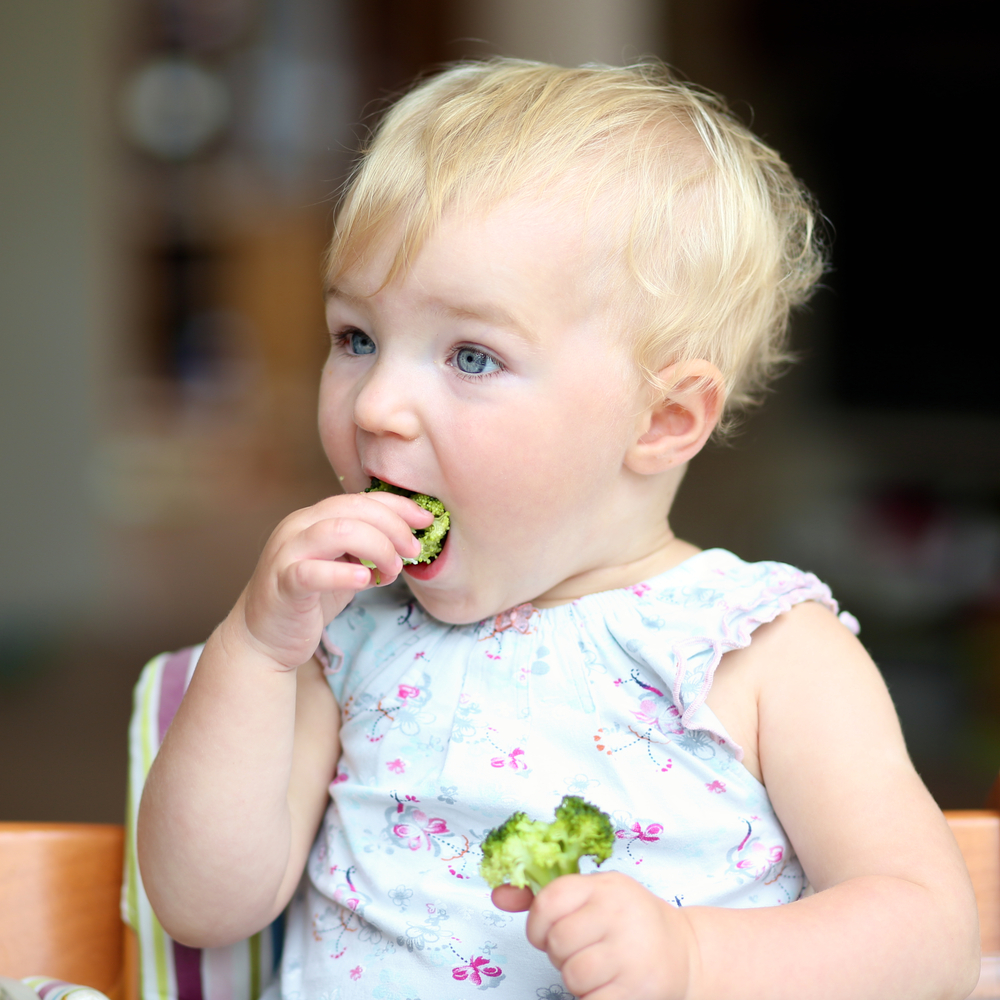
"Help! My baby just stopped eating!" This is a common opening to many emails and phone calls I receive from worried parents.
I remember one case especially vividly. A 10 month old girl suddenly started refusing all her meals. When I visited the family at their home, the girl's mom tried to feed her some mashed-up chicken soup. The baby clamped her mouth shut, pushed the spoon away, and arched her back, screaming. Every attempt to feed her with a spoon was met with a similar response. But guess what happened when we scooped some of the food right on the tray of her high chair? The little girl promptly picked up every single piece of chicken and veggies with her fingers and ate them all!
When I later followed up with the parents, they told me that the girl had been happily and almost exclusively self-feeding since my last visit. They never thought that letting her be more independent would make such a difference in their mealtimes. And although the amounts she was eating were not as consistent as they were with spoon-feeding, it was obvious that overall she was getting all the nutrition she needed to grow and develop.
Refusing the spoon is normal.
Refusing a spoon is actually an important milestone—no less significant than the first tooth or the first step. Most babies go through this developmentally appropriate stage at around 9-11 months when they do not want to play a passive role in feeding anymore. They want to do it all by themselves! Of course, all children develop at different rates and some babies are happy to be fed with a spoon longer, especially those who were born prematurely or have oral-motor delays. But a vast majority of babies rebel against the spoon shortly before they turn one.
But it's scary (for parents).
As parents, we choose to control many areas of our children's lives. Eating is no exception. When we allow babies to self-feed more, we may need to give up the power we have over what and how much they are eating. We fear that our baby will eat little of what we offer, choose less nutritious foods, or decide to eat nothing at all.
If seeing a barely touched dinner gives you nightmares, it is encouraging to know that research shows that small children are great at self-regulating. And if nutritional balance is your concern, try recording everything your baby is eating over a week's time. Chances are you will see a decent intake from all the food groups (as long as you're offering a healthy variety, of course).
As someone who often works with parents of "problem eaters" I know that it can be especially hard to trust your little one around eating if your baby is a cautious eater, has a clinical diagnosis, exhibits strong food preferences, or is smaller than most babies his age. That's why, if your intuition tells you that your case is more complex, always talk to your doctor or dietitian to rule out underlying issues that may affect your child's eating.
Be prepared.
Misunderstanding the normal spoon-refusal milestone can lead to major feeding struggles. But, if we parents can take our baby's lead and be more responsive and trusting in our feeding relationship, it doesn't have to. The little girl I mentioned before has turned into a toddler with great eating habits who happily enjoys a variety of foods…as long as she's feeding herself.
Natalia Stasenko MS, RD, CDN is a pediatric dietitian based in London and New York. She offers an online, one-on-one support program for parents of picky eaters called Feeding Bytes, and is the mother of three. Natalia is the cowriter of the cookbook Real Baby Food, and when not writing, teaching or consulting, she is in the kitchen cooking and eating with her family. Follow Natalia on Twitter, read more of her stories on feedingbytes.com.































